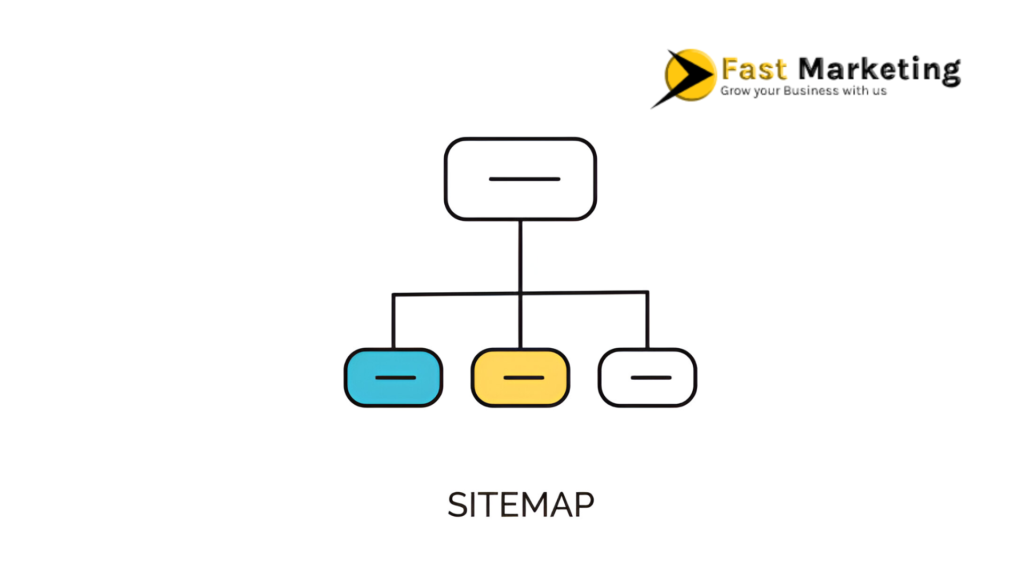Introduction to Sitemaps
It boosts website indexing process by enabling the crucial pages to be found and ranked. There are two main types: XML sitemaps for search engines and HTML sitemaps for users. XML sitemaps typically provide data like update frequency and priority, as well as HTML sitemaps which aid navigation. Websites with large or complex structures are those who gain the most from sitemaps. Sitemap updates performed on a regular basis make it possible for search engines to detect the new or modified content and therefore the SEO performance and visibility are enhanced. Making use of sitemaps cannot be ignored in website optimization for better output.
Table of Contents
What is a sitemap
what is a sitemap, which is a file containing all the pages of a website so they will be found by search engines. And, what is a sitemap in fact? It represents the way search engine spiders read and neatly understand the structure of a site that makes the page rank as the roadmap of the search engine. What is the significance of a sitemap in SEO? A sitemap ensures that search engines fetch new and updated content when checked by the search engine. To sum up, what is a sitemap then? It’s a necessary function using webtools that enables both to see and rank your data, and in addition, it helps you make the valid content more conveniently.

Types of Sitemaps
1. XML Sitemaps
XML (Extensible Markup Language) sites, for the most part, are intended to be acknowledged by searching devices. They are a collection of Web pages with URLs and constituent data including the latest change date, the frequency of page updates, and their answers to the question “relative importance.”
2. HTML Sitemaps
While XML sitemaps are for the machine, HTML sitemaps are designed for humans. They are a structured list of links to make it easier for visitors to a site to surf the site.
What is a sitemap A 2. HTML Sitemaps guide helps users and search engines navigate a website. Understanding what is a sitemap ensures better indexing and user experience. 2. HTML Sitemaps improve SEO by organizing pages efficiently, making it easier for visitors and crawlers to find relevant content.”
3. Image Sitemaps
What is a sitemap -this kind of tagging is made for photos and it helps search engines easier and quicker to index visual content. This is particularly useful for photography or e-commerce websites.
4. Video Sitemaps
What is a sitemap ? The Video Sitemap increases the ability for search engines to better index video content. If you understand what is sitemap functionality, you will also be aware of the benefits it brings, such as better visibility and a higher position in the search results. Using the Video Sitemap can help you SEO your content, which in turn helps users find your videos easily through search engines
5. News Sitemaps
An XML sitemap is a tool for the web crawlers to follow and understand the structure of a website. News Sitemaps which are dedicated to up-to-date and breakthrough publications are key to being in search engine results in time. Hence, Publishing a sitemap will help you lead in the higher rankings and improve your visibility what a sitemap is can significantly enhance your website’s SEO and visibility.
Why Are Sitemaps Important ?
Improved Search Engine Crawling and Indexing
A comestible serves to make sure that search engines can rapidly locate and inventory matter, even when a site has inefficient internal connection or a huge number of pages.
2. Enhanced User Experience
An HTML sitemap is a kind of file that lists all the URLs and links that are present in your website. This will help your customers to reach their destination on your website more easily and quickly without going through the menus
3. Faster Content Discovery
what is a Sitemaps are like a shot in the arm for the websites that need frequent updating of their content, such as news portals or blogs, as they assist the search engines to speed up the process of getting new pages indexed
4. Better Handling of Large Websites
Sitemaps are a must on e-commerce pages and others that are rich with articles to ensure that deep pages are indexed properly.
5. Helps in Structuring Website Hierarchy
what is a Sitemaps are a must on e-commerce pages and others that are rich with articles to ensure that deep pages are indexed properly.

How to Create a Sitemap ?
- Using Online Sitemap Generators
Automated XML sitemap generators exist in the market, such as Screaming Frog, XML-Sitemaps.com, and Yoast SEO, which can perform all the necessary operations with minimum human intervention. - Manually Creating an XML Sitemap
XML sitemap can be manually built by coding URLs in the required format on popular text editors like Notepad++ or using XML marker tools available online. - Using CMS Plugins
CMS platforms like WordPress, Joomla, and Drupal have equipped the system with the feature of plugins to create and update sitemaps automatically. Configuration is necessary. Such additions are necessary to acquire better Google rankings.
How to Submit a Sitemap to Search Engines
Learn about what is a sitemaps, and their pledges to the search engines. Understand the import of the submissions of your sitemap for a better index, and search backlinks.
- Submitting to Google Search Console
Log in to Google Search Console.
Select your property.
Navigate to “Sitemaps” under the “Index” section.
Enter the sitemap URL and click “Submit.” - Submitting to Bing Webmaster Tools
Sign in to Bing Webmaster Tools.
Go to the “Sitemaps” section.
Submit the sitemap URL. - Adding Sitemap to robots.txt File
This sitemap URL should be put in the robots.txt file for the search engines to quickly find it.
User-agent: *
Sitemap: https://www.example.com/sitemap.xmlBest Practices for Optimizing Sitemaps
1. Keep It Updated
Regularly update the sitemap to include new pages and remove outdated links.
2. Use Canonical URLs
Ensure the URLs in your sitemap are canonical to avoid duplicate content issues.
3. Limit the Sitemap Size
Google allows up to 50,000 URLs per sitemap, but keeping it under 10,000 URLs enhances efficiency.
4. Ensure Mobile-Friendliness
If your website is mobile-responsive, make sure mobile-specific URLs are included in the sitemap.
5. Use hreflang for Multi-Language Websites
If your website has multiple language versions, include hreflang annotations to guide search engines in indexing the correct versions.
Conclusion
knowledge of what is a sitemap is essential for website SEO improvement as well as search engine’s better crawlability. A sitemap that is well structured enables search engines to index your pages in an efficient manner, which, in turn, creates a greater visibility and ranking. If you are now familiar with what a sitemap is, then one of the methods you can improve your website performance is through the creating and submitting of sitemap to search engines.
4o mini





